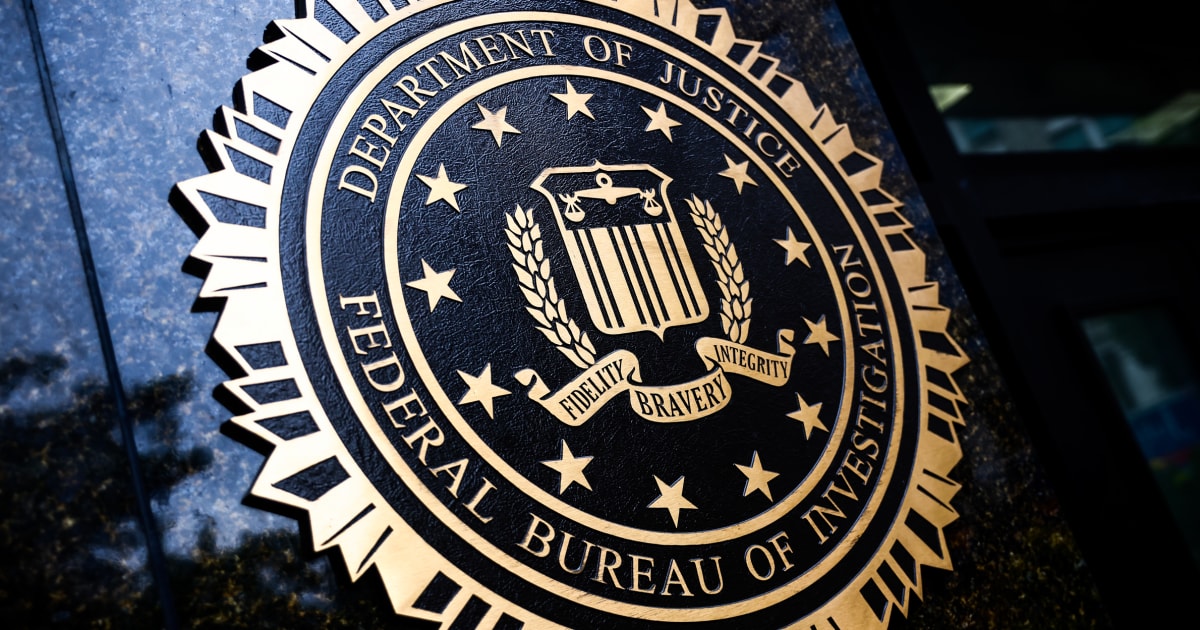The FBI has agreed to pay more than $22 million to settle a class-action lawsuit alleging female recruits were singled out for dismissal in training and routinely harassed by instructors with sexually charged comments about their breast size, false allegations of infidelity and the need to take contraception “to control their moods.”
The payout to 34 women dismissed from the FBI’s training academy in Quantico, Virginia, still subject to approval by a federal judge, would rank among the biggest lawsuit settlements in the history of the bureau.
“These problems are pervasive within the FBI and the attitudes that created them were learned at the academy,” said David J. Shaffer, the lawyer for the women. “This case will make important major changes in these attitudes.”
Filed in 2019 and first reported by NBC News, the lawsuit contends that female recruits had been subjected to a hostile working environment in which they were judged more harshly than their male peers and “excessively targeted for correction and dismissal in tactical situations for perceived lack of judgment” and subjective “suitability” criteria.
One of the women said she was admonished to “smile more” and subjected to repeated sexual advances. Another said that an instructor leered at her and stared at her chest, “sometimes while licking his lips.”
“Through passive tolerance,” the lawsuit said, “the FBI has intentionally allowed the Good Old Boy Network to flourish unrestrained at the FBI Academy.”
The FBI did not immediately comment on the settlement. Many of the allegations in the lawsuit were confirmed in a 2022 internal watchdog report. The report found, for instance, that women accounted for 46% of all the trainees dismissed from the FBI Academy from 2015 to 2020, despite the fact that they represented only 25% of the entire group.
Men still make up some 75% of the bureau’s special agents despite efforts to diversify in recent years.
Among the provisions of the settlement was that the FBI would offer the plaintiffs a chance to continue training toward becoming agents and “guaranteed placement,” for those who pass, in one of their top three preferred field offices. The bureau also has agreed to a review by outside experts who will work to ensure that female recruits face a fair evaluation process.
Some of the women have moved on to other careers, Shaffer said, adding “the FBI has deprived itself of some genuinely exceptional talent.”
One of those women, Paula Bird, said she hopes the settlement will cause the FBI to make changes that will “give women going through agent training in the future a fair shot at their dream career.”
“My dream was to be an FBI agent,” said Bird, who is now a lawyer. “I interned with the FBI in college and did everything needed to qualify for a special agent role. I even became a lawyer, which the FBI considers a high value qualification for future agents. It was shattering when the FBI derailed my career trajectory. “


